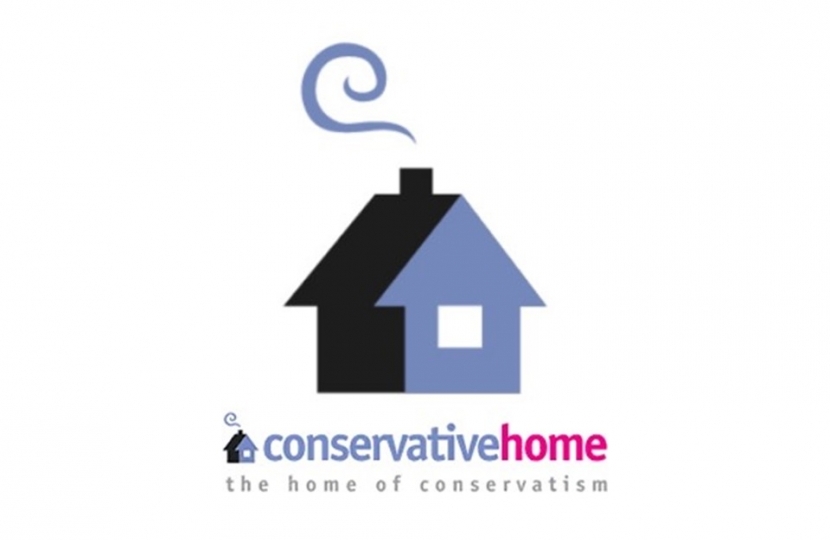
With Sinn Fein’s shocking success in the Republic of Ireland’s General Election, Boris Johnson’s Government needs to sit up and take notice. This is not the election of an ally and trading partner whom the United Kingdom keeps at arm’s reach and offers a congratulatory phone-call to when the final results are tallied. The relationship between the Republic of Ireland the United Kingdom arguably runs deeper than the relationship experienced by any two countries elsewhere on the planet, forged by blood and treasure.
Sinn Fein, a party that stands candidates across the whole of the Island of Ireland has tapped into a feeling across the demographic spectrum in the Republic of Ireland with message used by political parties around the world associated with success – the economy. Quite frankly, when Fianna Fáil and Fine Gael look back at the wreckage of this election they will wonder how they managed to mismanage the campaign on such a simple message. Sinn Fein has managed to tap into the deep feelings felt throughout the Republic where people feel left behind since the 2008 Global Financial Crisis. We should note here that Ireland was left severely crippled by the crisis which saw one of its major banks collapse and the necessitation of an €85m bailout package from the IMF, EU and some bilateral loans (including from the UK). This was on an order of magnitude greater than that experienced by us in the UK. The collapse destroyed the credibility of the presiding party, Fianna Fáil, which made a collation between the two main parties, leading up to this election, to maintain this duopoly on Irish power even more galling to the Irish electorate.
Sinn Fein offered a solution to the people of Ireland – albeit it an unrealistic one. In contrast to their election manifesto for the General Election in the United Kingdom, they actually had an economic message which promised greater spending on infrastructure and a huge public housing program – the advantage of campaigning in poetry.
The system of government in Ireland also benefitted the Sinn Fein message during the General Election, with a confidence and supply agreement between Fine Gael and Fianna Fáil, allowing both to be tarred with the same mistakes and neither able to claim credit for the successes. This allowed Mary Lou Macdonald to walk straight through the middle and mop up the pieces.
Not to be underestimated is the effectiveness of the Sinn Fein campaigning and branding machine. In Northern Ireland, in particular, they are absolutely tapped into their communities, providing a plethora of services and even their own, widely circulated newspaper. On branding, both Fine Gael and Fianna Fáil have, at least during campaigning, ruled out a governing coalition with Sinn Fein due to, just 23 years ago, being officially the political wing of the Provisional IRA – a group responsible for over 30 years of violence across the island. Macdonald, at least in the Republic, seems to have been able to manage a seamless transfer of power from Gerry Adams, and in doing so, shake of the perception of her party being active participants in the perpetuation of violence – something anathema to most in Ireland. The recruitment of youthful candidates, who have no direct experience of the Troubles has been key in this, not only throwing off the dark past, but looking like a youthful, vibrant, energetic organisation.
Let nobody suppose that Sinn Fein has changed its stripes or indeed its raison d’être and the threat it poses to the United Kingdom. We should first count ourselves lucky that, having only stood in 40 seats, Sinn Fein cannot possibly form a majority governing body in the Dáil Éireann, they have 37 seats and lead the polls. They do however hold the balance of power now, whether we like it or not. We can not deny that democratic event, but this will take very careful management from the UK.
This result will buoy Sinn Fein, which is currently only the second largest party in Northern Ireland, to push for further reforms in the North. No doubt they will come forward with their much historical tagline of having been given a “democratic mandate” for change. This could see Northern Ireland squeezed between an active cessation grouping pulling the strings in the South, aided by their counterparts answering those calls in the North.
More pressingly, having a rather large foot in the door, as Sinn Fein will have, gives them influence over the Irish position on the Brexit negotiations within the EU. Do not pass this off as a small country, with a small Party trying to get its way. As I mentioned the Sinn Fein communication machine is impressive, not only that, but their negotiating stance is often very aggressive and unyielding (they held fast for almost three years in Northern Ireland – doing incredible damage to the economy in the process). If they have the opportunity to use the Brexit negotiations to forge a path towards a border poll they will take it. Though Ireland as a whole is a small cog in the EU machine, its influence will be magnified during the trade negotiations given the importance of the bilateral relationship with the United Kingdom.
For the past half century, the relationship between the two Governments has been based on a mutual benefit for Northern Ireland, neutrality in the border poll question and the sovereignty of the people of Northern Ireland and the Republic of Ireland to choose their own destiny when they are ready to. The UK Government now faces an entirely different reality. A major party, who cannot be ignored, by a grand coalition in the Republic lest they being an outright majority in the next election, in the Irish government is now committed to ending Northern Ireland’s place in the United Kingdom. Not only that, but they actually deny the British Governments right to have any control over Northern Ireland at all. That party will now be equipped with the machinery of Government across the island of Ireland (North and South) and will wield its influence at a critical time for the United Kingdom.
With the fate of the union also in balance in Scotland, Boris faces issues on multiple fronts. It seems the Irish question is also far from answered.
Link to original, published on ConservativeHome on 11 Feb 2020.




